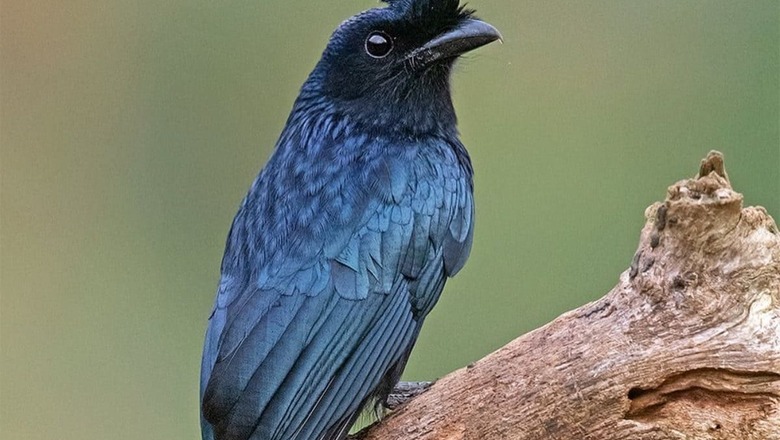
views
Humans may be the dominant species on the planet today but there are certain features and attributes that other species can outperform us in. For instance, how many people do you think are able to perfectly mimic sounds and cries of animals and birds? Yes, there are artists who are able to mimic other species but they are not many in number. Imagine a species, all members of which are able to perfectly mimic other creatures. We are talking about the Greater Racket Tailed Drongo, a kind of bird that can imitate the sounds of 40 species, including birds, frogs and insects.
The greater racket-tailed drongo (Dicrurus paradiseus) pic.twitter.com/2ChrR4obK0— NatureIsAmazing (@OurNatureRocks) January 4, 2024
This rare bird was thoroughly studied by Sameera Agnihotri, a Wildlife and Conservation master’s degree holder from the National Centre for Biological Sciences, Bengaluru. After a year-long investigation, it was discovered that this bird could mimic the sounds of 35 different birds, as well as certain mammals and frogs.
Dicrurus paradiseus is the scientific name for the greater racket-tailed drongo bird. Black Drongo is another name for it. This medium-sized bird, which is also found in India, has two distinct kinds of long feathers. It could appear as though two big bees are chasing a black bird while it flies around.
A post shared by Aseem Kothiala (@kothiala)
It is a fearless bird that will face any other raptor without hesitation. It is widely recognised in India as Kotwal, or Police Bird, for its loud whistle blowing. The bird uses loud sounds to warn other birds when they are ready to be attacked by predators, allowing those birds to escape with their lives. It also gets its name from the fact that it does not permit other birds to enter its domain.
It is referred to as Vakul in the Mizo language of northeastern India, and the Mizo people use the tail feathers in rituals. It was frequently maintained in captivity by people in various parts of India before the 1950s. It was reported to be extremely resilient and crow-like, able to eat a wide variety of foods.
What's your reaction?




















Comments
0 comment